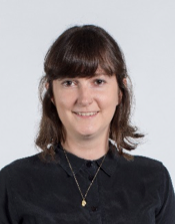Unlocking the demand potential for recycled organic compost in Sydney’s vegetable production.
For this NSW Environment Protection Authority-funded project, ISF worked in partnership with the NSW Department of Primary Industries' Greater Sydney Local Land Services and NSW Farmers. Our aim was to investigate and unlock the demand potential for recycled organic compost in Sydney’s vegetable production.
There is a strong need to create viable local organic waste value chains as part of a circular bio-economy, where organic waste is recycled and its value can be captured, but too often research and practice focuses on supply (compost collection and treatment processing, for example). Moving from the current supply-driven market to a demand-driven model requires a ‘reverse logistics’ value chain and demand for compost from farmers and for compost-grown vegetables from retailers and consumers.
A better understanding of the barriers that affect the demand for organic waste is essential. These barriers can include the variability and suitability of the recycled organic compost product, lack of soil testing (and understanding of soil needs), lack of end-user experience with organic waste products, and perceived saturation of the market by poultry manure.
ISF’s social research component of this project sought to better understand the needs, preferences and priorities regarding recycled organic compost for stakeholders in the value chain – including growers, retailers, consumers and compost producers. Through interviews, surveys, field days and workshops, the research explored the key knowledge, technical, financial and institutional barriers that prevent or limit the uptake of compost.
The project provided recommendations for marketing and messaging to overcome the key barriers identified. This messaging has been utilised within NSW Farmers' CRED project to communicate the benefits of compost in production to their networks and establish an ongoing communications plan (see the Compost Portal on the AgInnovators website). The social research and engagement components of the project were explicitly designed to ‘inform awareness, knowledge, behaviours and practices around the use of recycled organic products’.
RESEARCH OUTPUTS
Creating demand for recycled organic compost (2017) (Report)
See some of the team’s case studies, summaries and videos on NSW Farmers AgInnovators portal here:
AgInnovators - Next Gen Compost (Website)
AgInnovators - Summary: Next Gen Compost project social research findings (Information paper)
AgInnovators - Key findings: Next Gen Compost project social science research (Information paper)
Researchers
-
Associate Professor and Research Director
-
Research Principal
-
Associate Professor and Research Director
Year
- 2018
Client
- Greater Sydney Local Land Services
Partner
- NSW Farmers Association







